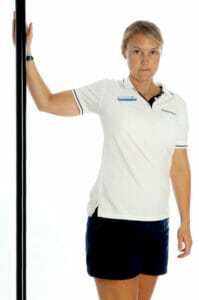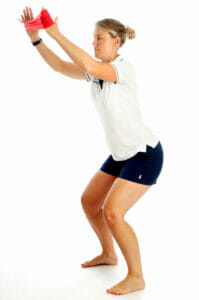Rotator Cuff Impingement
Today we will be offering some advice, exercises and stretches which are good for those suffering with rotator cuff impingement (shoulder pain).
Have you been in the gym recently lifting weights with friends and heard someone talk about shoulder or upper arm pain? The chances are it maybe rotator cuff impingement.
Impingement syndrome is more likely to occur in people who engage in physical activities that require repeated arm movements such as gym/golf/sailing/bowls/tennis/badminton and gardening.
Common symptoms include:
- An arc of shoulder pain approximately when your arm is at shoulder height and/or when your arm is overhead.
- Shoulder pain that can run from the top of the shoulder to the elbow.
- Pain when lying on the sore shoulder.
- Muscle weakness or pain when attempting to reach or lift.
- Pain reaching for the seat-belt.
- Pain getting your coat on.
Here is a testimonial from two of our clients who had shoulder pain;
“After 6 months of not having full movement in my shoulder I visited Physio-logical. 5 sessions later it’s like I never had the problem and no pain at all. Highly recommend.” (Mr. A)
“I had a bad shoulder as a result of a fall whilst skiing. I left it for several months hoping it would get better on its own, it didn’t. A friend ( a healthcare professional ) suggested I see Natalie and ask her opinion. Natalie understood exactly my issue, I had a few physio sessions and Natalie also suggested some changes to my own workout regime in order to strengthen the muscles in the shoulder area. In a relatively short space of time my shoulder returned to 100%. Any future issues and I will seek Natalie’s advice immediately. Great job Natalie, Thank you.” (Mr. M)
Hands on physiotherapy treatments including; sports massage, frictions, mobilisation, manipulation, ultrasound, balance (proprioceptive) re-education, combined with stretching and strengthening exercises is an effective treatment for rotator cuff impingement/shoulder pain.
Please be aware of your body and take advice from your GP before exercising or send an email to (enquiries@physio-logical.net) for advice and guidance.
All of these exercises should be pain free, if they are not pain free then do not do them and seek advice from a physiotherapist or sports therapist.
Shoulder Stretch
You may be more likely to develop rotator cuff problems if the back of your shoulder is tight
 |
|
Pectoral Stretch
You may be more likely to develop rotator cuff problems if the front of your shoulder is tight.
 |
|
Squat + Shoulder Elevation with Theraband
This is an exercise to start to strengthen the rotator cuff this should only be done once you have full shoulder movement and should be undertaken pain free.
 |
|




